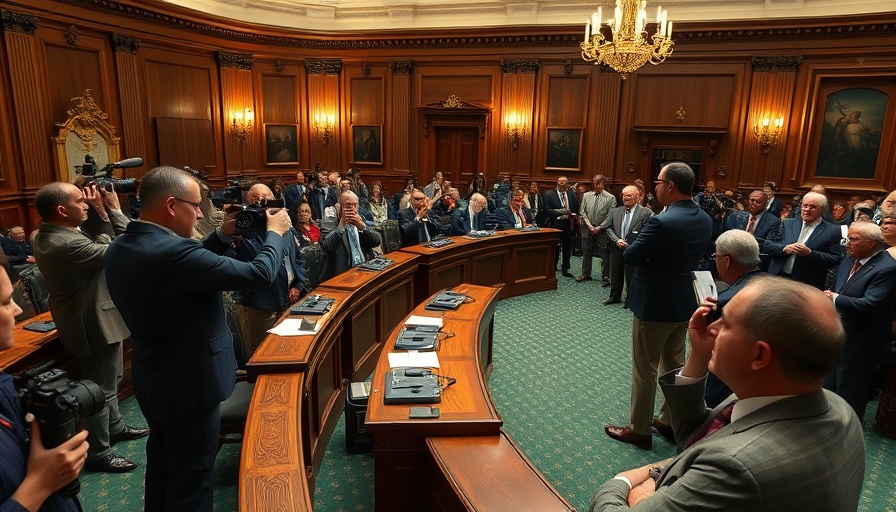
The Courage to Stand Up
Last week, two faith leaders were arrested in Washington, D.C., for a cause that highlights the moral struggle of our time. During a protest in the Capitol Rotunda, they raised their voices against proposed federal budget cuts that threaten the most vulnerable in society. The arrest didn’t come as a surprise; they did it as a prophetic act of civil disobedience, a form of faith manifested in action.
Why This Matters Now
Cutting programs like food assistance and Medicaid while simultaneously increasing military spending leads to a paradoxical situation where the needs of impoverished families are overshadowed by military expenditures. The figures are staggering; over half of the federal discretionary budget goes to military programs—amounting to nearly $2 million per minute. Such priorities raise a moral question: Is this truly reflective of our faith values?
Faith in Action: A Lesson from History
Rev. William Barber II’s participation in protests serves as a reminder of faith’s role in advocating for justice. Through the lens of faith, the historical positions of figures like Martin Luther King Jr. come to mind—leaders for social justice who understood that sometimes laws exist to be challenged when they are unjust. The act of being arrested becomes symbolic, akin to the biblical call to speak up for the oppressed.
Visualizing a Just Society
As the protesters expressed through song and scripture, they echo the prophetic voice of Isaiah, reminding us of the consequences of unjust laws. The vivid imagery of schools with ample resources instead of military equipment creates a powerful vision of what could be. It compels us to consider our societal values: Shouldn't our children’s education and welfare come before military interests?
Taking a Stand for the Vulnerable
Faith calls us to act with compassion. By choosing to confront injustices openly, these leaders are asking us all: What does courage look like in our lives? Acts of civil disobedience shouldn’t just invoke sympathy; they should galvanize action among those seeking to embody their faith in tangible ways.
Reflection: What Would Jesus Do?
At the core of Christian teachings lies the principle of standing for the marginalized. Jesus's life exemplified advocacy for the oppressed; in 2025, the challenge remains. Engaging with our communities and making choices that uplift those in need echoes the heart of the faith.
In a world where economic violence is prevalent, the courage to stand up for social justice must be renewed. In small acts of defiance, communities of faith can advocate to make every voice heard—because, ultimately, love is an action.
 Add Row
Add Row  Add
Add 




Write A Comment